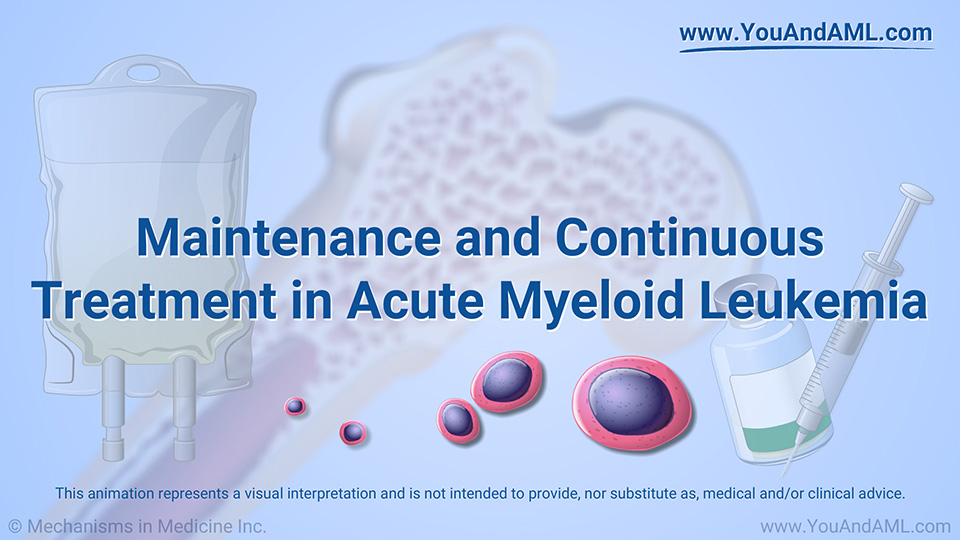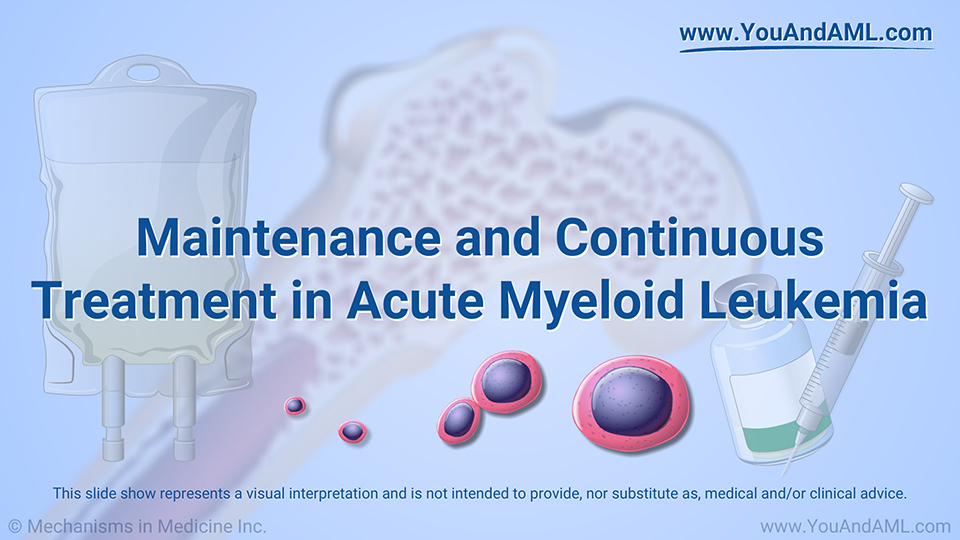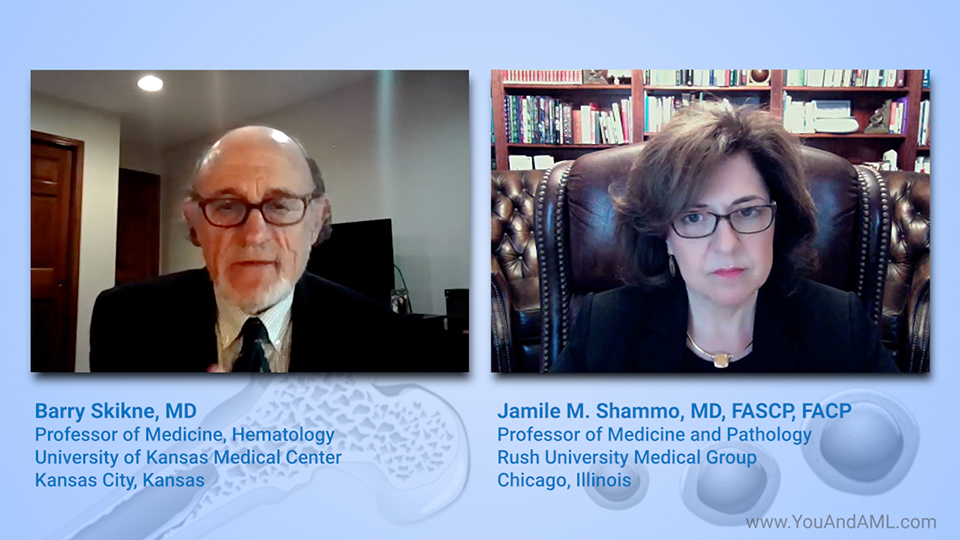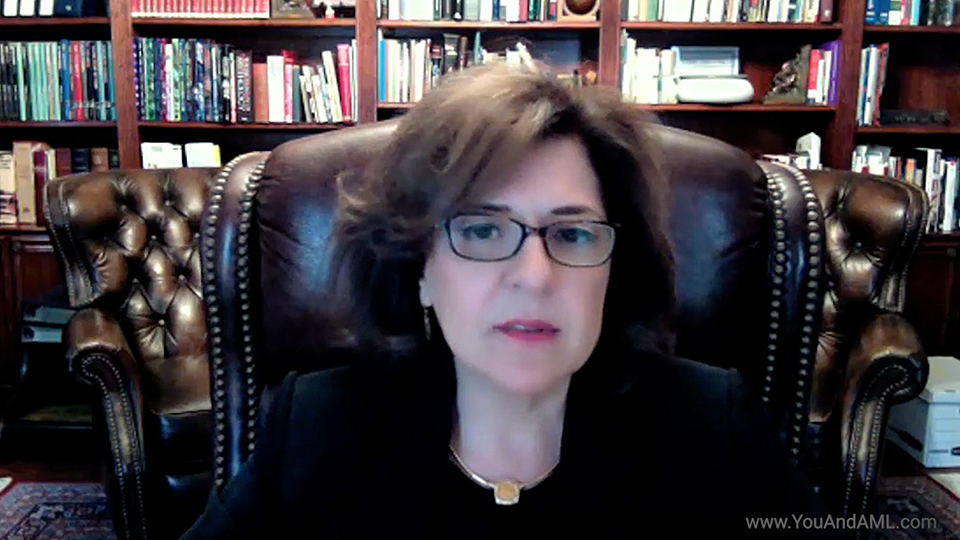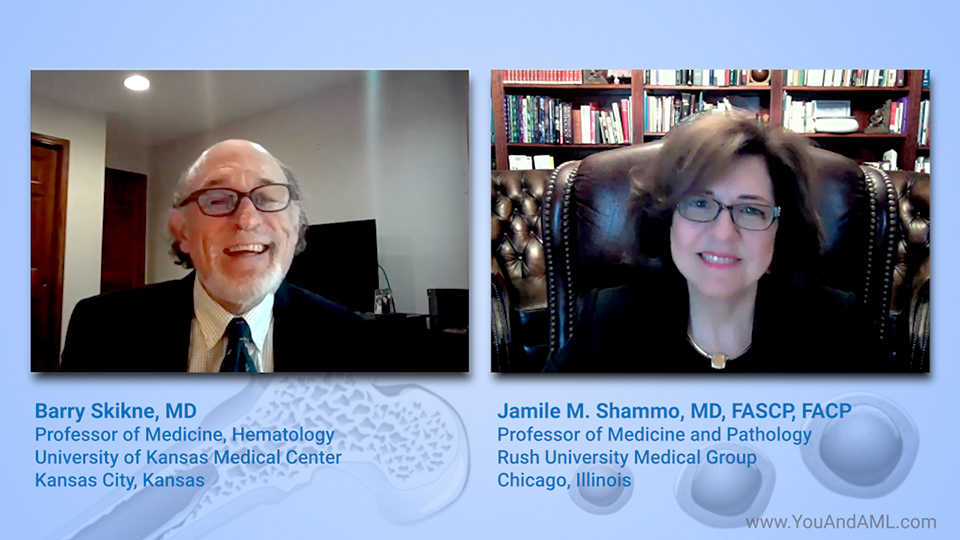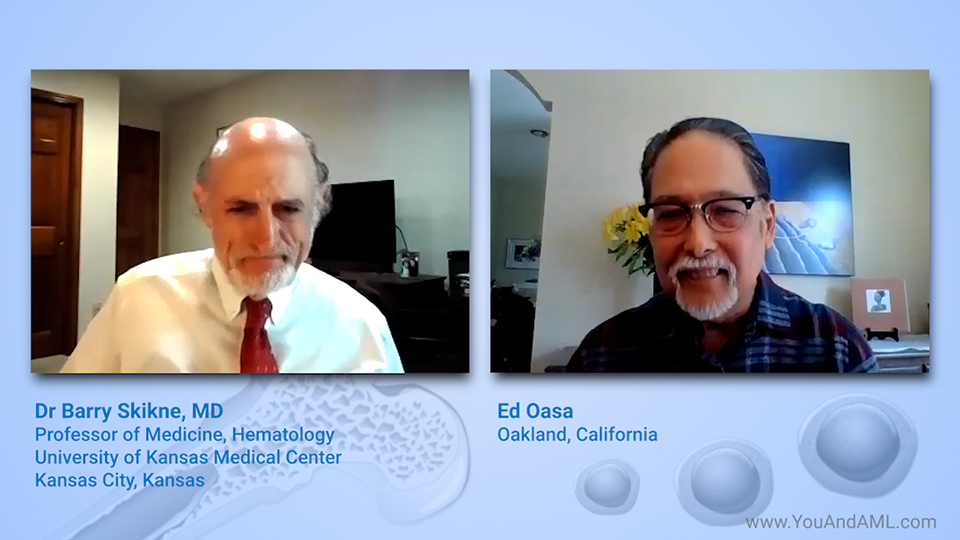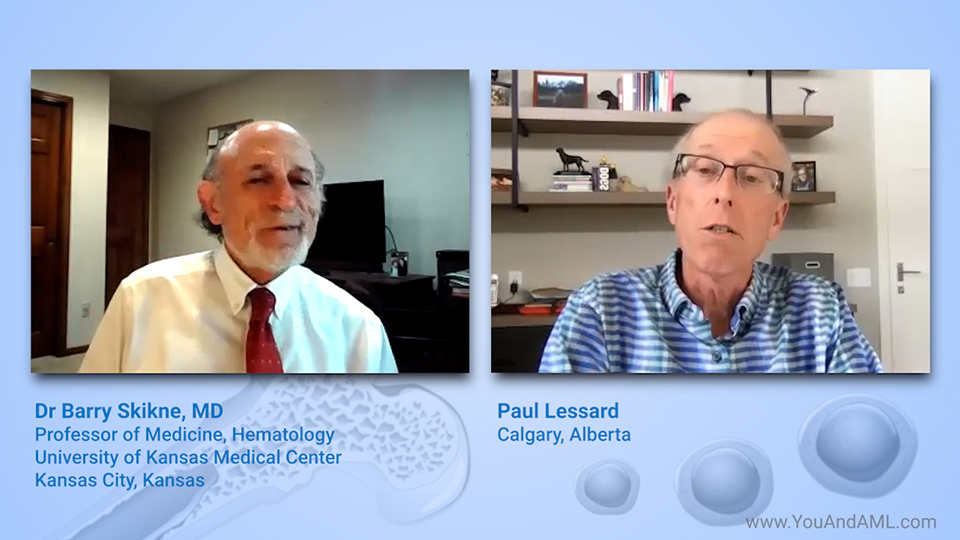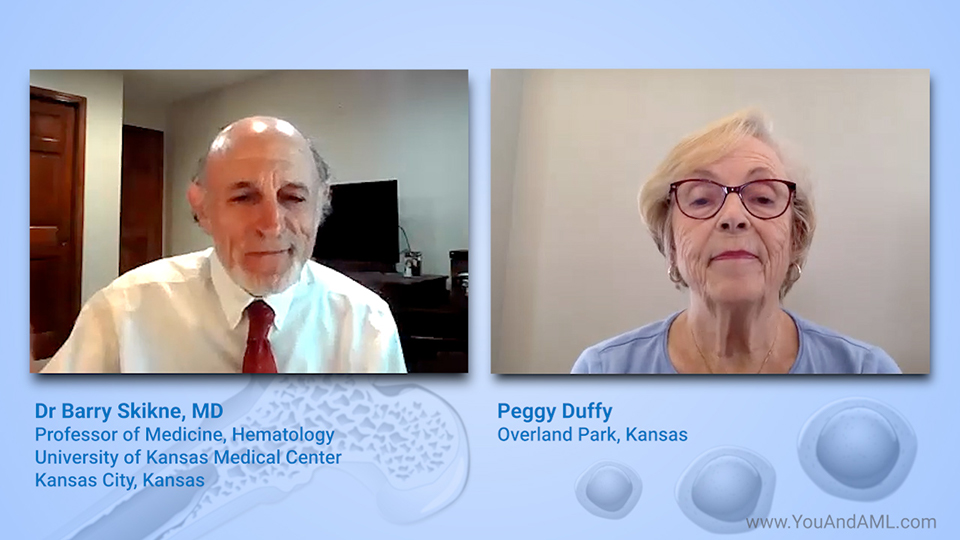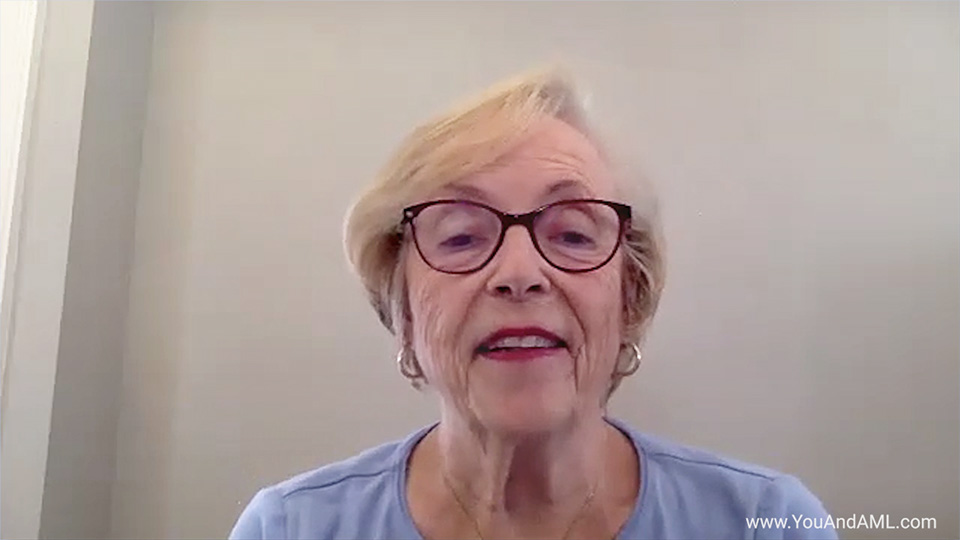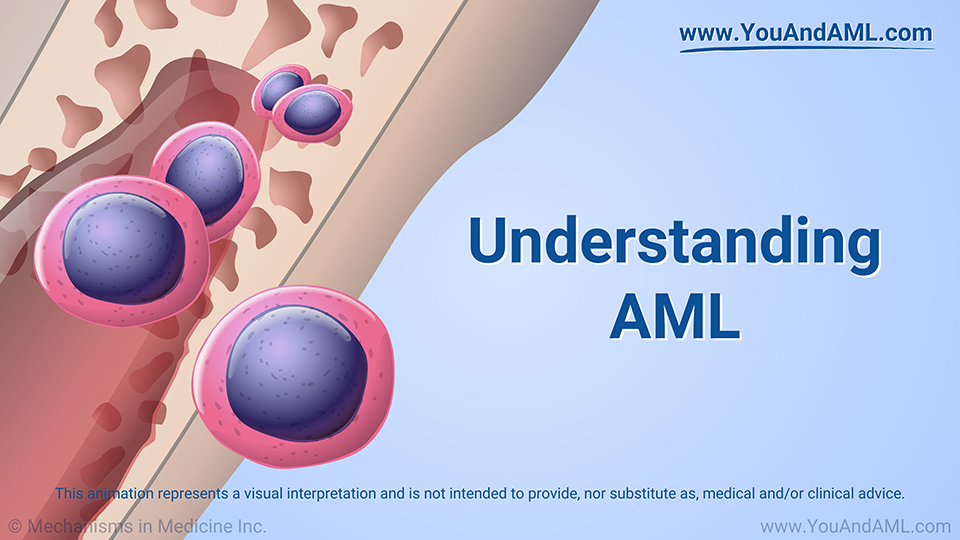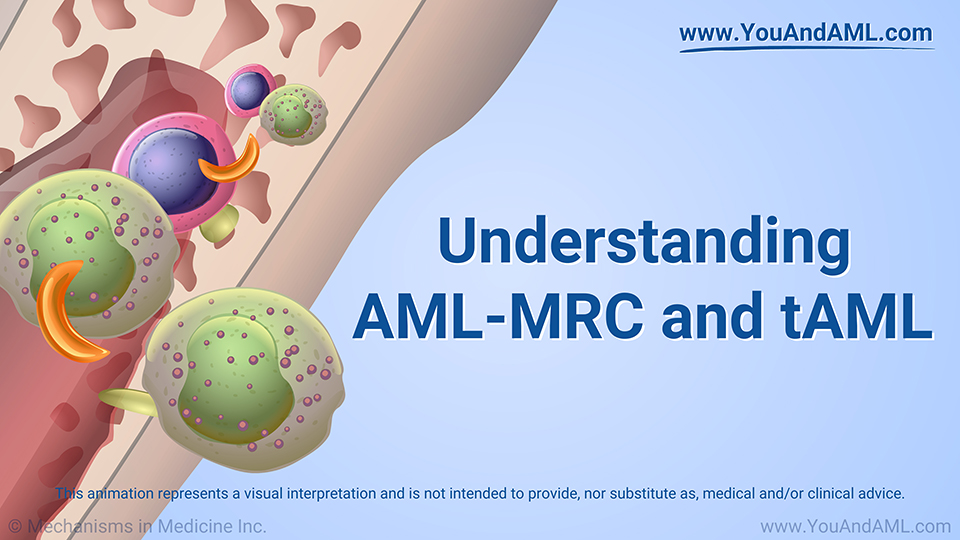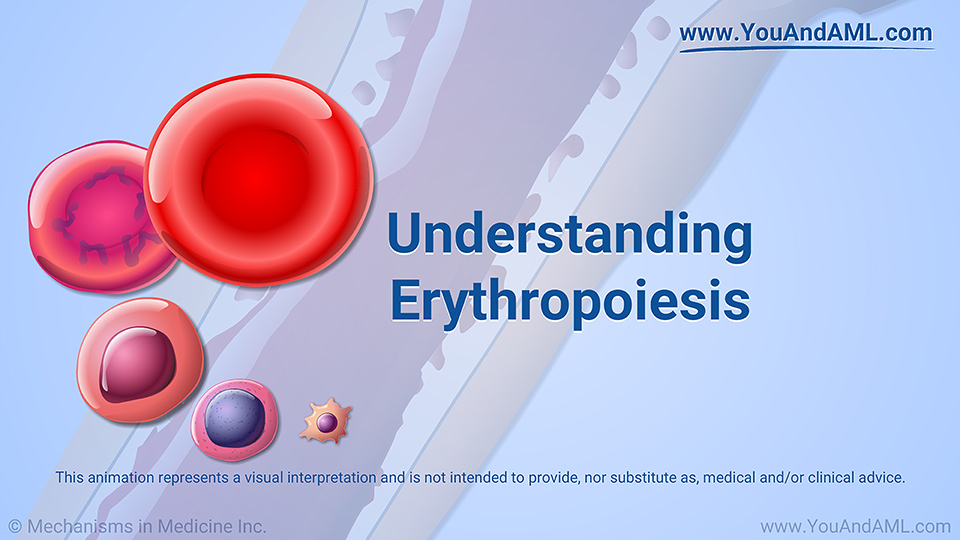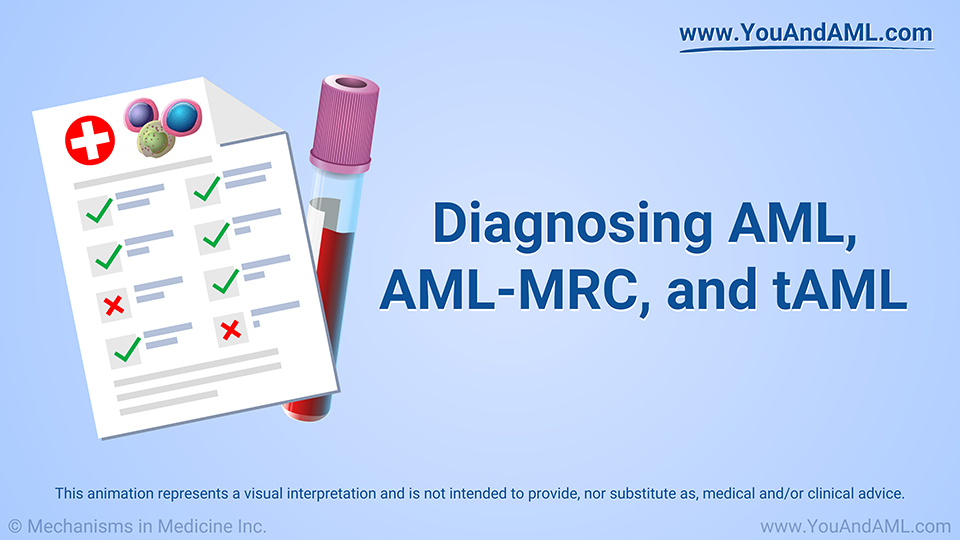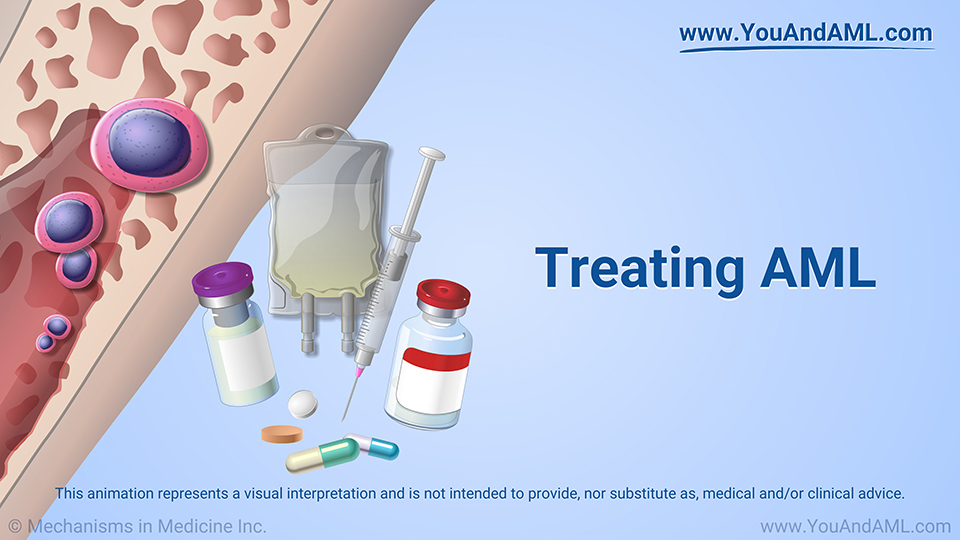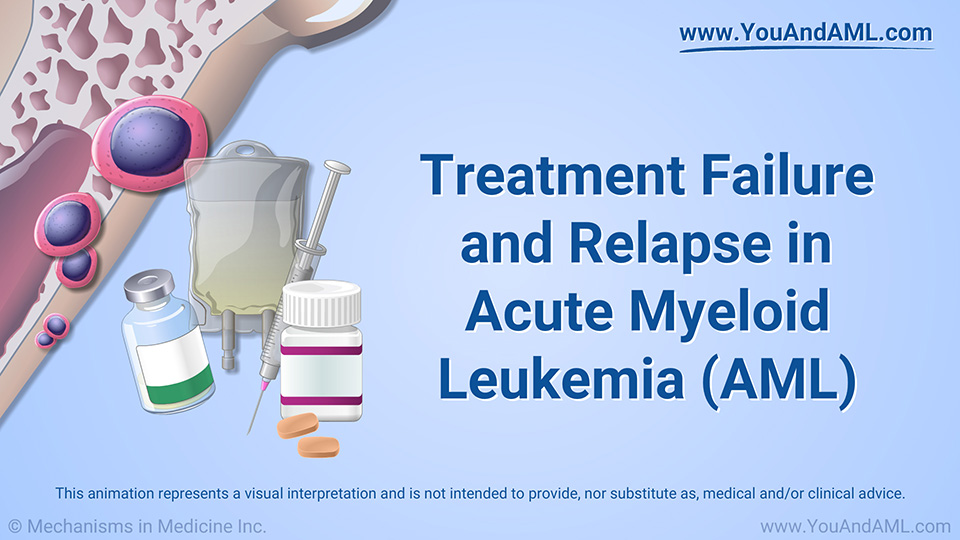Dr. Barry Skikne, an expert on
acute myeloid leukemia (
AML) discusses the importance of
testing for AML mutations, which has become a key part of treating patients in order to understand the mechanisms of disease and
mutation-driven treatment choices. IDH2 mutations is a determinant for FDA approved use of
enasidenib for patients with relapsed or refractory AML.
Ivosidenib has also been approved for AML patients with IDH1 mutations. It is very important to know the AML mutation at time of diagnosis or at time of relapse. Other mutations discussed are FLT3 mutations and approved therapy for relapsed or refractory AML treatment with
gilteritinib and
midostaurin.
Daunorubicin and
cytarabine as a single, fixed combination therapy is discussed which improves survival in patients with AML. Midostaurin has also been used in post-induction maintenance of AML patients. Oral
azacitidine has more recently been used in patients with adverse risk AML after induction chemotherapy and complete remission for up to 1 year of treatment. Recent newer agents
venetoclax and
gemtuzumab have also shown efficacy in AML relapsed patients.
-
Share with family and friends:
Click here to take our SURVEY
Your feedback is important to us! We will use your feedback to develop future areas of content about AML which will help other patients, caregivers and families.
